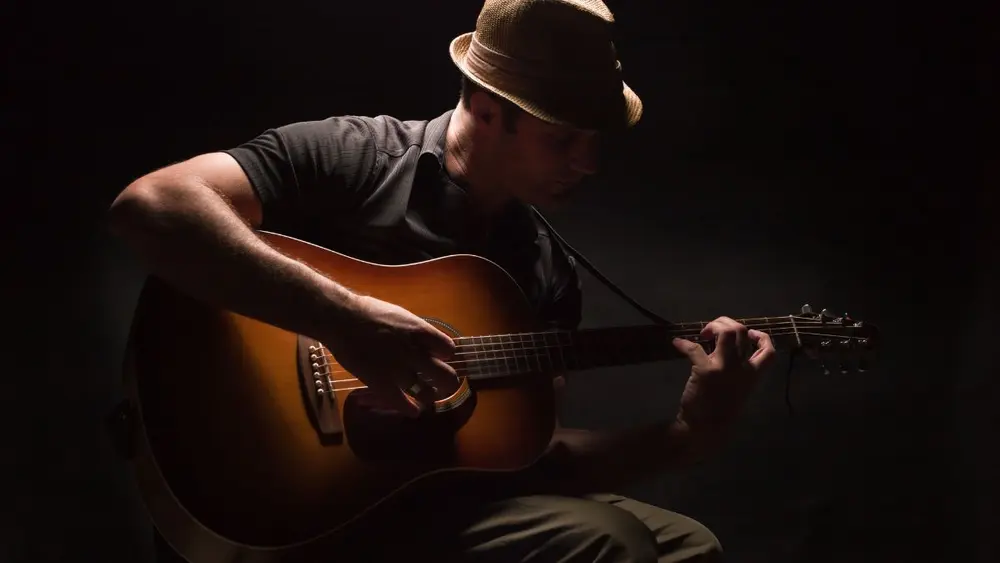Diving into the heartstring-tugging, soul-stirring world of blues guitar requires not just an understanding of the genre’s history but also an appreciation for the maestros who’ve shaped its sound and spirit.
Each legendary blues guitarist brought their unique voice to the six strings, creating unforgettable songs that continue to inspire and move listeners. Let’s take a closer, more detailed look at some of these iconic figures and their most famous tunes.
1. B.B. King: The King of Blues
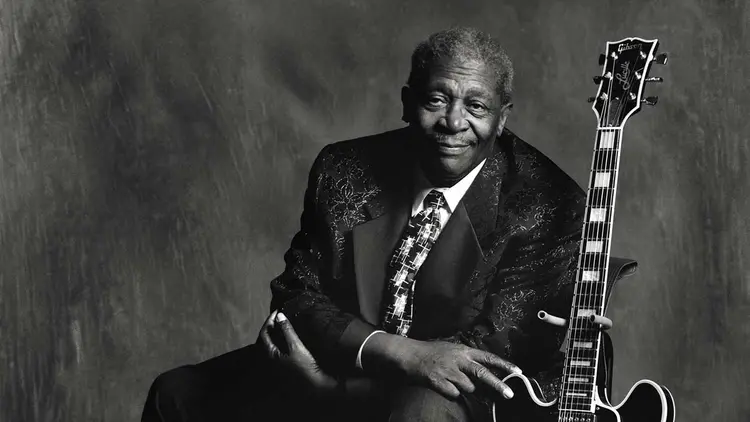
Lucille’s companion and arguably the most recognized ambassador of the blues, B.B. King brought sophistication and depth to blues guitar playing. With a career spanning over half a century, King’s vibrato and expressive bends have influenced countless musicians.
His most famous song, “The Thrill Is Gone,” showcases his ability to convey profound emotion through his guitar, Lucille, and his soulful vocals. This track remains a cornerstone of blues music, capturing the essence of the blues’ melancholic yet cathartic nature.
2. Stevie Ray Vaughan: Soulful Strings
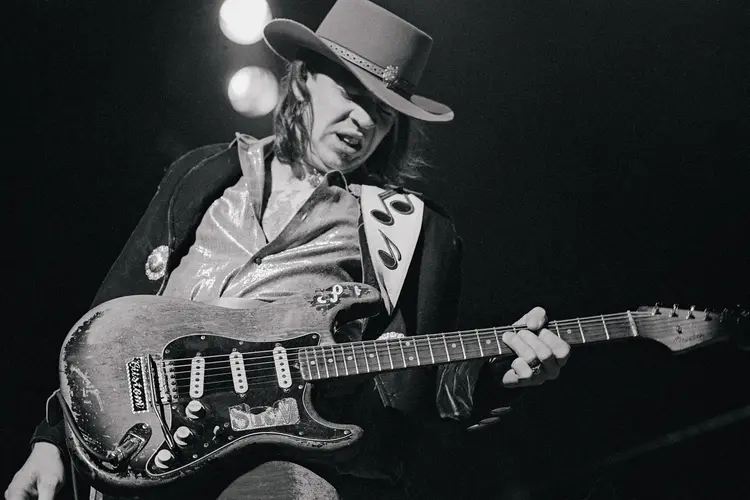
Stevie Ray Vaughan revitalized blues music in the 1980s with his incendiary guitar playing and passionate performances. Combining elements of blues, rock, and jazz, Vaughan’s style was both powerful and nuanced.
“Texas Flood” and “Pride and Joy” stand out among his discography, showcasing his virtuosic guitar skills and deep, emotional connection to his music. Vaughan’s tragically short career left a lasting impact on blues and popular music, making him a symbol of guitar mastery.
3. Buddy Guy: The Chicago Blues Powerhouse
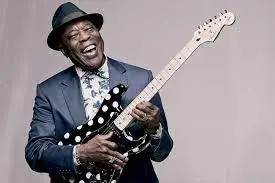
A pivotal figure in the Chicago blues scene, Buddy Guy’s electrifying performances and pioneering guitar techniques have made him a legend. Guy’s expressive playing, characterized by fast runs, dynamic use of distortion, and a flamboyant stage presence, broke new ground in blues music.
His song “Damn Right, I’ve Got the Blues” from his comeback album of the same name, redefined modern blues and brought it to new audiences. Buddy Guy continues to inspire guitarists across genres with his innovative approach to the blues.
4. Albert King: The Southpaw Sovereign
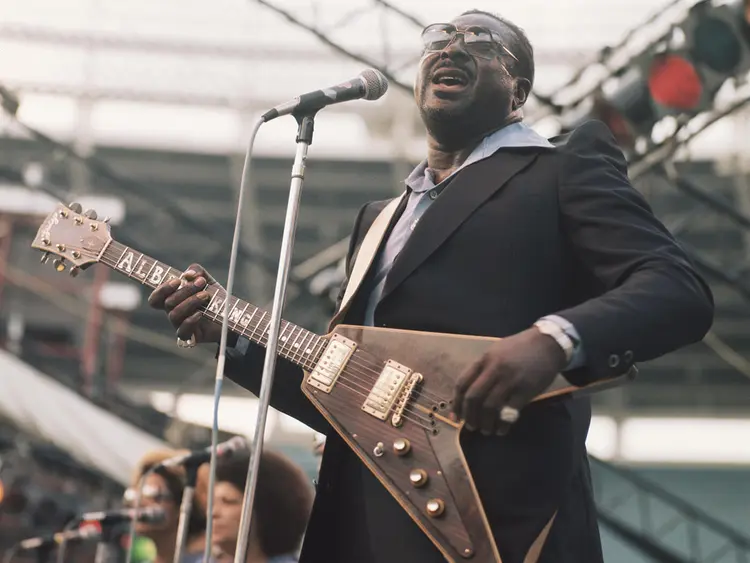
Albert King, known for his powerful string-bending and unique, upside-down guitar playing, was a major influence on both blues and rock guitarists. His most famous track, “Born Under a Bad Sign,” has become a blues standard, covered by numerous artists across different genres. King’s commanding voice and formidable guitar work created a signature sound that remains unparalleled in the blues world.
5. Joe Bonamassa: Modern Blues Virtuoso

A prodigy who opened for B.B. King at the age of 12, Joe Bonamassa has grown into a modern blues guitar icon. His blend of blues, rock, and soul, along with his virtuosic guitar skills, has brought the blues to new audiences.
Songs like “Driving Towards the Daylight” and “Sloe Gin” highlight Bonamassa’s dynamic range, from powerful riffs to heart-wrenching solos, demonstrating his profound reverence for the blues tradition while pushing its boundaries.
6. Eric Clapton: A Bridge Between Blues and Rock
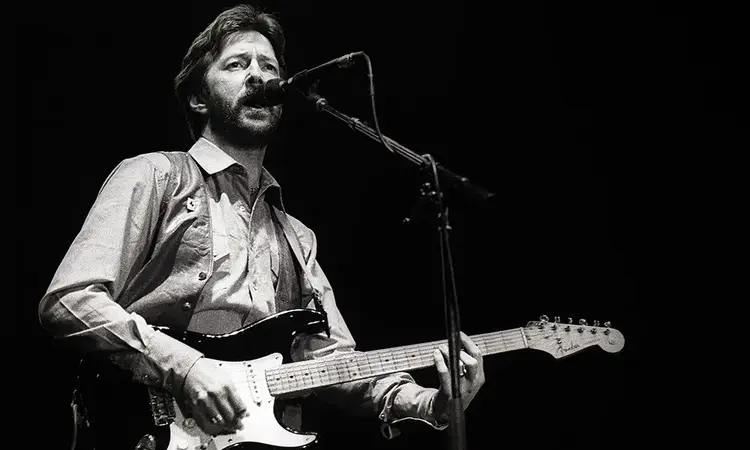
No discussion of blues guitarists would be complete without Eric Clapton. From his early days with The Yardbirds and Cream to his prolific solo career, Clapton has explored various facets of the blues. “Layla,” with its unforgettable opening riff and emotional depth, and the soul-stirring “Tears in Heaven,” showcase his versatility and ability to fuse blues with rock, creating timeless classics that have touched millions.
7. Jimi Hendrix: The Psychedelic Blues Innovator
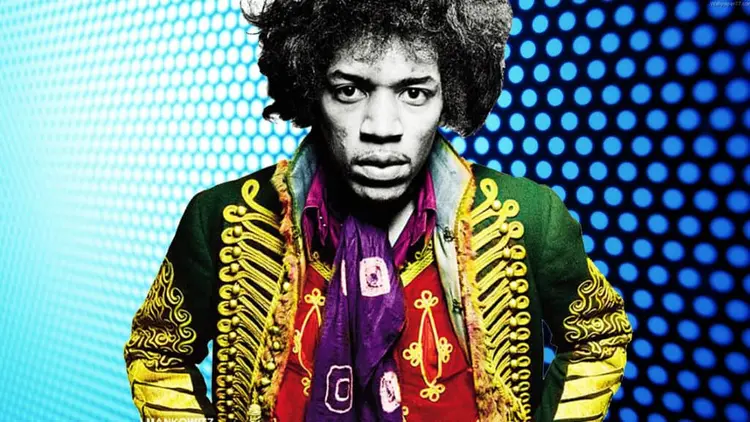
Jimi Hendrix transformed the landscape of blues and rock with his innovative guitar techniques and experimental sounds. Though known for his rock anthem “Purple Haze,” Hendrix’s blues roots are evident in songs like “Red House” and “Voodoo Child (Slight Return).” His exploratory approach to guitar playing expanded the expressive capabilities of the instrument, leaving a profound impact on blues, rock, and music as a whole.
8. John Mayer: The Contemporary Blues Explorer
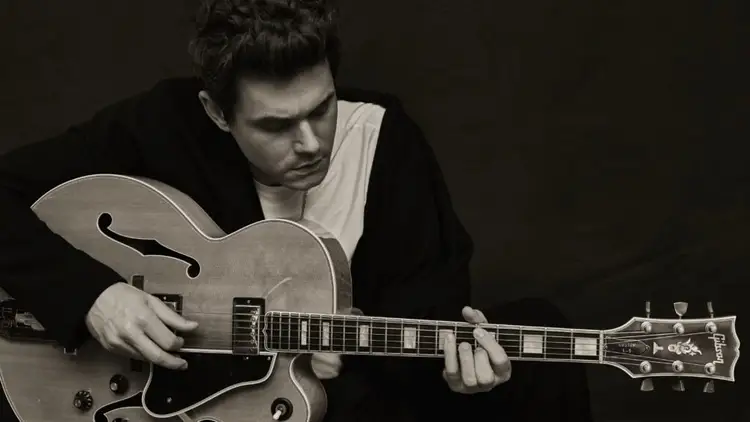
Among the best blues guitarists of the modern era, John Mayer stands out for his unique blend of blues, pop, and rock, crafting a sound that’s both accessible and deeply rooted in blues tradition. Mayer’s journey into the blues showcases his versatility and deep respect for the genre, earning him a place among guitar legends. With a keen understanding of blues guitar’s expressive potential, Mayer has developed a guitar style that’s both distinctive and reflective of his influences.
John Mayer’s foray into the blues is most prominently displayed in his work with the John Mayer Trio and his album “Continuum.” Tracks like “Gravity” and “Slow Dancing in a Burning Room” not only highlight his prowess on the electric guitar but also his ability to convey complex emotions through his playing. His skillful blend of light and shade, dynamics, and melodic intuition marks him as a significant figure in the blues genre.
9. Robert Johnson: The Mythical Foundation of Blues Guitar
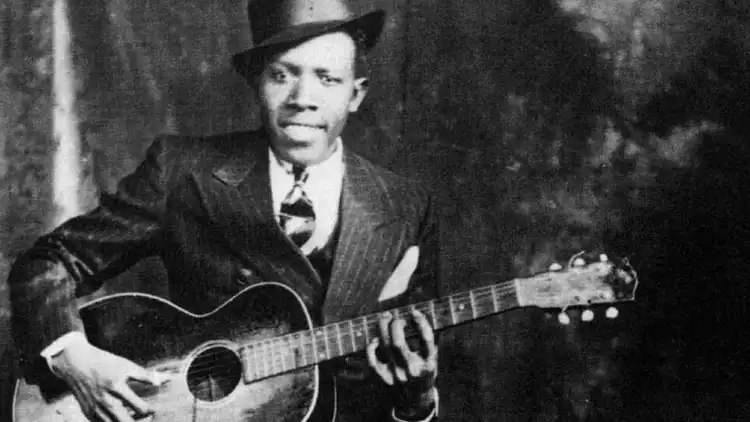
Robert Johnson stands as a towering figure in the annals of blues history, a guitar player whose profound influence on the genre is felt to this day. His mastery of playing blues guitar, combined with the enigmatic details of his life and death, has made Johnson not just a legend but a foundational pillar of modern blues and the lineage of electric blues greats.
Johnson’s ability to play guitar, particularly his innovative techniques, set him apart in the early days of blues music. He was not just a musician; he was a pioneer who explored the expressive capabilities of the guitar in ways that had never been done before. His slide playing, in particular, was mesmerizing, using a bottle neck or knife blade to create haunting, soulful melodies that seemed to transcend the limitations of the instrument.
10. Gary Clark Jr.: The Torchbearer of Modern Blues Guitar

In the landscape of modern music, few artists have managed to both honor the rich legacy of blues guitar and propel it into contemporary relevance quite like Gary Clark Jr. Known for his gritty voice and even grittier guitar skills, Clark has become synonymous with the modern blues movement, seamlessly blending blues, rock, soul, and more into a sound uniquely his own.
From the moment he released his debut studio album, “Blak and Blu,” Gary Clark Jr. established himself as a formidable force in the music world. This album not only showcased his versatility as a musician but also set a new standard for how to play blues guitar in the 21st century. With tracks that range from soulful ballads to hard-hitting rockers, Clark demonstrated a profound understanding and respect for the blues tradition, while also pushing its boundaries.
11. Peter Green: The Soulful Navigator of Guitar World
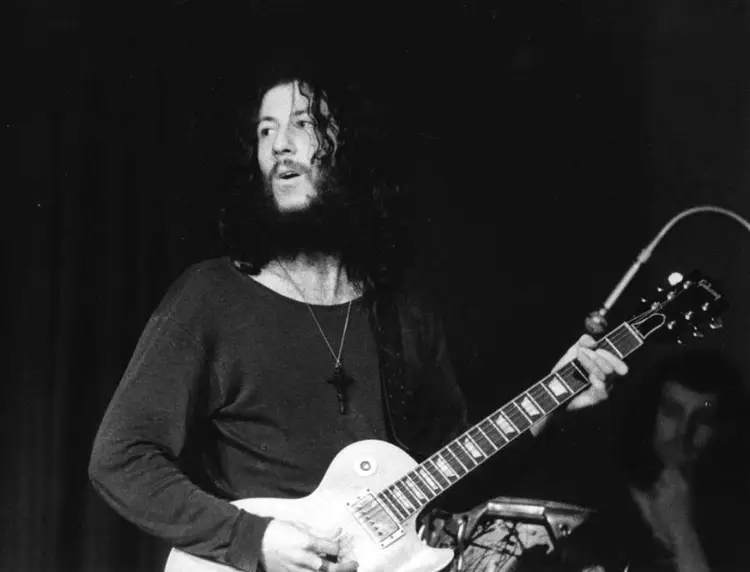
Peter Green’s journey through the guitar world is one marked by profound emotion, technical mastery, and a hauntingly beautiful tone that has left an indelible mark on blues and rock music. As a founding member of Fleetwood Mac, Green’s influence extended far beyond the band’s early blues roots, crafting timeless classics like “Albatross” and “Black Magic Woman.”
His playing, characterized by its fluidity and expressive vibrato, showcased a deep understanding of the blues’ emotional depth. Green’s ability to convey complex feelings through his guitar work has made him a revered figure in the blues genre, inspiring countless guitarists with his soulful approach to music.
12. Delta Blues: The Raw Roots of Guitar Mastery
The delta blues represents the raw, emotional core of blues music, originating from the Mississippi Delta. This genre is where the soulful journey of blues guitarists began, with legends like Robert Johnson and Son House laying the foundational sounds and techniques that would shape the future of blues and rock music.
Delta blues is characterized by its stripped-down, acoustic sound, often featuring nothing more than a voice and a slide guitar. This style emphasizes the deep emotional connection between the guitarist and their instrument, creating a powerful, visceral listening experience that resonates with the raw human emotions of sorrow, joy, and resilience.
13. Derek Trucks: The Slide Guitar Phenom

Derek Trucks has carved out a unique niche in the guitar world with his transcendent slide guitar technique and ability to blend genres seamlessly. A member of the Allman Brothers Band and leader of the Tedeschi Trucks Band, Trucks’ slide playing is deeply rooted in the blues tradition yet pushes the boundaries into jazz, rock, and world music.
His fluid, vocal-like slide work on the guitar is both innovative and deeply expressive, earning him acclaim as one of the most talented guitarists of his generation. Trucks continues to inspire with his dedication to the craft, proving that the blues can evolve in exciting and soulful new directions.
14. Johnny Winter: The Texas Tornado of Blues Guitar

Johnny Winter burst onto the scene with his lightning-fast guitar licks and fiery performances, earning him the nickname “The Texas Tornado.” Winter’s approach to blues guitar was aggressive, loud, and electrifying, blending traditional blues with rock ‘n’ roll energy.
His mastery of the electric guitar and slide techniques made him a standout figure in the blues and rock world, influencing countless guitarists with his intensity and precision. Winter’s passion for the blues was not only evident in his playing but also in his efforts to revive the careers of classic blues musicians, showcasing his deep respect for the genre’s roots.
15. Jeff Beck: The Guitar Innovator
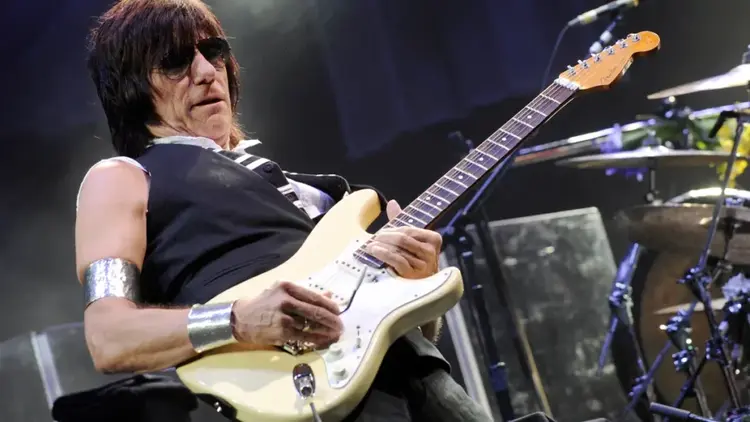
Jeff Beck is hailed as a guitar innovator, known for his exploratory approach to guitar playing and sound manipulation. Beck’s contributions to the guitar world span across genres, from blues and jazz to rock and electronica, demonstrating his versatile mastery of the instrument.
His ability to create new textures and sounds with his guitar has made him a pioneer in music, constantly pushing the boundaries of what is possible with six strings. Beck’s work in the blues genre showcases his deep understanding of its traditions, while also highlighting his willingness to experiment and evolve, making him a pivotal figure in the development of modern guitar music.
16. Rory Gallagher: The Electric Warrior of Blues
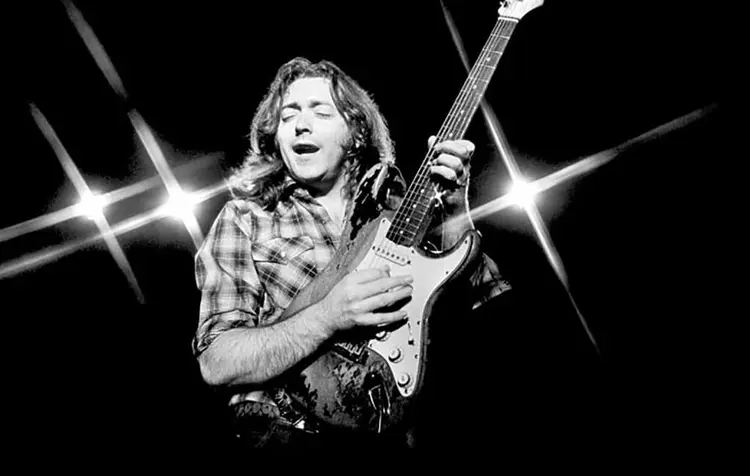
Rory Gallagher, an Irish blues-rock legend, has left an indelible mark on the electric blues scene with his fiery guitar playing and energetic performances. Gallagher’s work, particularly seen in his debut album, showcased a blend of raw blues power and rock ‘n’ roll grit. Known for his virtuosic guitar skills, Gallagher’s music remains a high watermark for electric blues, demonstrating the genre’s capacity for both emotional depth and electrifying excitement.
17. Electric Blues: The Amplified Soul
The electric blues transformed the acoustic sounds of the Delta into the amplified roar of the urban landscape. This genre introduced a new level of intensity to blues music, with artists like Muddy Waters and Howlin’ Wolf leading the charge.
The electric guitar became the voice of the blues, crying out the struggles and joys of life in electrifying tones that would go on to influence not just blues but rock music, laying the foundation for the sound of legends like the Rolling Stones.
8. John Lee Hooker: The Boogie Man of Blues
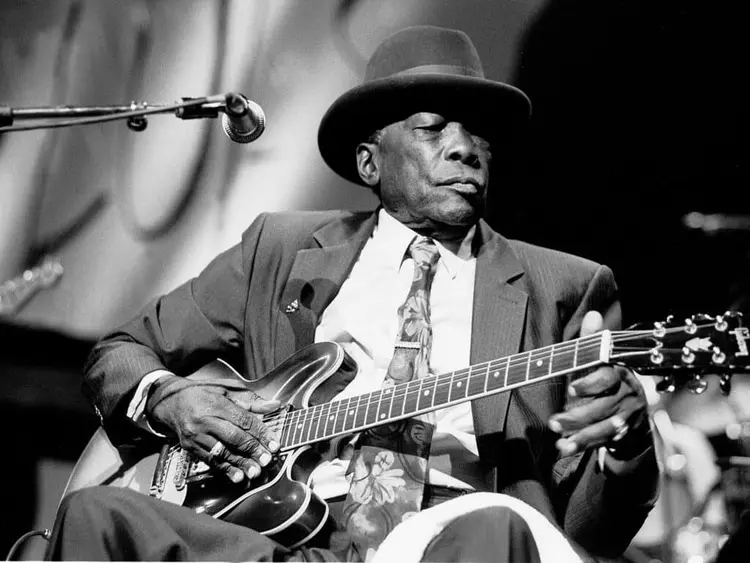
John Lee Hooker, with his deep, growling vocals and hypnotic guitar rhythms, personified the soul of the blues. His debut album introduced the world to a unique style of blues, characterized by its relentless boogie rhythm and raw emotional power.
Hooker’s music, spanning over five decades, remains a testament to the enduring appeal of the blues, with classics like “Boom Boom” and “One Bourbon, One Scotch, One Beer” defining the genre for generations of fans.
19. Hip Hop and the Blues: An Unlikely Symphony
While hip hop might seem worlds apart from the blues, the two genres share deep connections, rooted in the African American experience and the storytelling tradition. Blues standards have found new life in hip hop samples, bridging generations and genres. Artists like Kanye West and Jay-Z have sampled blues classics, creating music that speaks to the soul’s struggles and triumphs, much like the blues pioneers did with their guitars and voices.
20. Elmore James: The Slide Guitar King
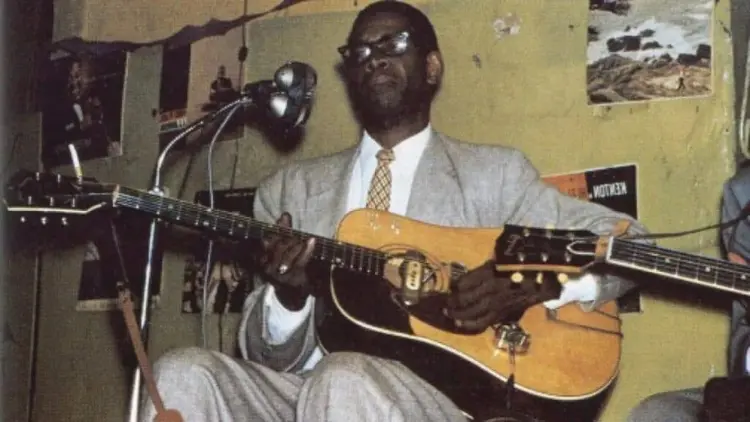
Elmore James took the slide guitar to new heights, earning him a spot among the greatest blues players of all time. Known as “The King of the Slide Guitar,” James’ electrifying sound and intense emotional expression set new standards for the blues. His most famous track, “Dust My Broom,” remains a blues standard, showcasing his powerful slide technique and raw vocal style, influencing countless guitarists across genres.
21. Duane Allman and Derek Trucks: The Slide Guitar Legacy
Duane Allman, a founding member of the Allman Brothers Band, and Derek Trucks, his later counterpart, both contributed significantly to the legacy of slide guitar in blues and rock music. Allman’s work, especially on the Allman Brothers Band’s debut album and his collaboration with Eric Clapton in Derek and the Dominos, showcased his mastery of the slide guitar, blending blues, country, and rock into a seamless whole. Trucks, following in Allman’s footsteps, has continued to evolve the slide guitar’s expressive potential, bridging the gap between the blues’ past and its future.
22. Gary Moore: Blues Powerhouse
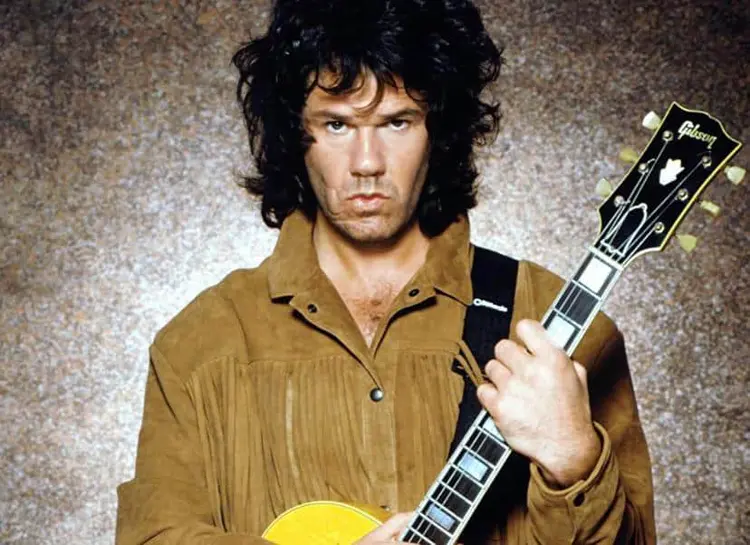
Gary Moore, hailing from Northern Ireland, brought a hard rock intensity to the blues, showcasing his exceptional skill as a guitarist on albums like “Still Got the Blues.” Moore’s passionate playing and powerful vocals breathed new life into blues standards, making them resonate with audiences worldwide. His ability to meld the fiery energy of rock with the soulful depth of the blues earned him a place among the genre’s greats.
23. Freddie King: The Texas Cannonball
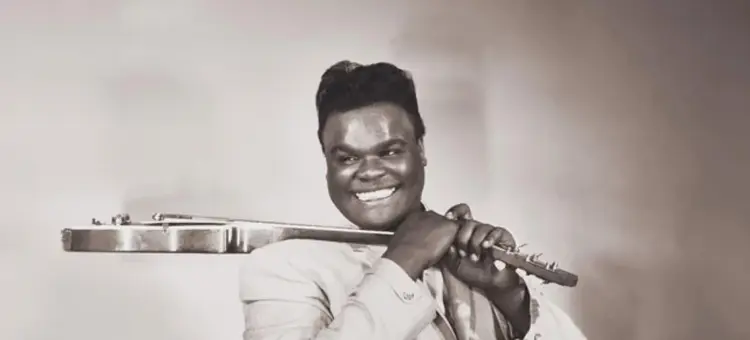
Freddie King, known for his explosive performances and pioneering guitar style, was a cornerstone of the electric blues. With hits like “Hide Away” and “The Stumble,” King combined a unique blend of Texas blues with Chicago’s raw energy, creating a sound that was all his own. His influence on blues and rock guitarists is unmatched, earning him the moniker “The Texas Cannonball” for his powerful, driving style.
24. The Chess Records Legacy
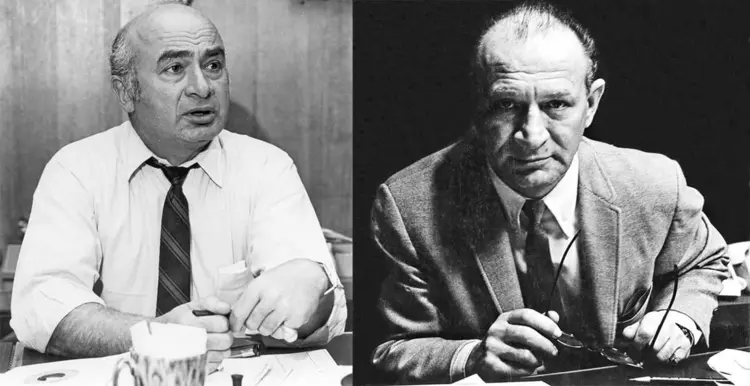
Chess Records, founded by Leonard and Phil Chess, was pivotal in the development of the blues, launching the careers of legends like Muddy Waters, Howlin’ Wolf, and Chuck Berry. This iconic label was at the heart of the electric blues movement, capturing the raw, unfiltered sound of Chicago blues and bringing it to the masses. Chess Records not only shaped the sound of blues but also laid the groundwork for rock ‘n’ roll, influencing countless musicians and forever changing the landscape of American music.
25. Billy Gibbons: The Texas Blues Revivalist

Billy Gibbons, best known as the guitarist and lead vocalist for ZZ Top, has been a driving force in keeping the Texas blues alive and kicking. Gibbons’ gritty guitar tone and blues-infused rock anthems have made him a revered figure in the blues community. His deep respect for blues traditions, combined with a willingness to experiment with sound and style, has helped introduce the blues to new generations, ensuring its place in the pantheon of American music.
Closing Notes
These legends of blues guitar each brought their unique voice to the genre, enriching it with their soulful melodies, technical prowess, and emotional depth. Their famous songs not only define their careers but also serve as milestones in the history of blues music, echoing through the ages and continuing to inspire musicians and fans alike. The blues is more than just a genre; it’s a feeling, a story, and a legacy carried on by the strings of these guitar heroes. Through their music, the soul of the blues lives on, as powerful and poignant as ever.


